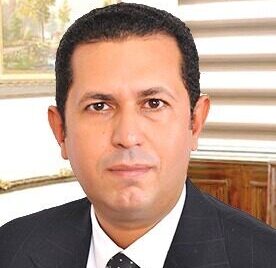Some people are reacting angrily to power outages, taking this anger to cyberspace.
Others view the whole matter with sarcasm, citing the tough mission of going to work in this soaring heat.
A third group of people lash out at the government for causing the cuts, complaining that they cannot live without air conditioners or fans.
However, hundreds of kilometres away from all this hassle, hundreds of people work in the heart of the Egyptian desert silently and with full sincerity under the scorching heat of the sun to create a new future for their country.
These are the people working within Toshka land reclamation project in Aswan. These people defy all difficulties and work to turn the sands of the desert into greenery.
They work tirelessly to make this project a success, years after it was labelled a ‘complete failure’.
Egypt launched an aspiring drive for the revival of the Toshka land reclamation project in 2014, following a suspension of many years, due to the withdrawal of most agricultural investment companies from the project because of the numerous technical problems they faced.
President Abdel Fattah El Sisi commanded the authorities concerned to re-evaluate the feasibility of implementing the project.
In 2017, the National Company for Desert Land Reclamation took actual steps to resuscitate the project with a plan to reclaim 600,000 acres.
Among many other things, the reclamation plan for the project includes the planting of 2.5 million date palms.
This is part of Egypt’s strategy to achieve food security and prop up the national economy by reclaiming the desert.
The fact is that the Toshka project has many advantages for the national economy. The project boosts agricultural production and increases domestic food supply. It also reduces dependence on imports and improves Egypt’s trade balance.
The project also contains great investment opportunities in the food industry sector. These include ones in the fields of food processing, packaging, and export, opening the door for enhancing value addition in agriculture and creating new jobs for the nation’s workers.
Thanks to its geographic location, Toshka can be a gateway into Africa, which increases its appeal as an investment magnet. The region is replete with resources, such as groundwater and space, making it an appropriate soil for agricultural investments and industries.
The government has already developed modern infrastructure in the area, including transport, roads, and communication, in its bid to attract investors to the project. This infrastructure has made Toshka easy to reach from all parts of Egypt.
The government also provides full support to investors by facilitating licensing and permits. It has established special zones for major industries and projects in the area.
Different financing mechanisms were chosen, relying on the private sector and international partnerships to ensure the project’s sustainability and long-term success.
Thanks to the strategic vision, effective management, and sincere will of President Sisi, Egypt has succeeded in transforming Toshka from an arid region into one of the most important agricultural production areas in the country.
This is why one can easily assume that Toshka represents a model for the optimal use of natural resources and technology to enhance the local economy and achieve sustainable development in the New Republic.
Mohamed Fahmy is the editor-in-chief of The Egyptian Gazette and Egyptian Mail newspapers






Discussion about this post